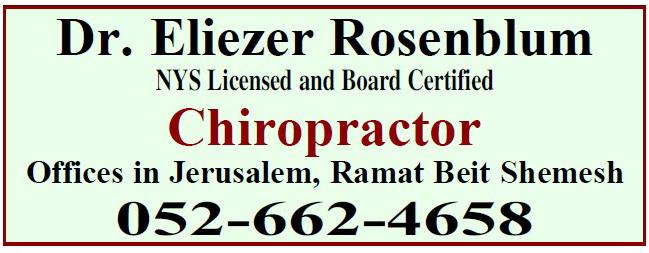
2 minute read
Rabbi Gideon Weitzman
RABBI GIDEON
Machon Puah for Fertility and Gynecology in Accordance with Halacha
Advertisement
WEITZMAN
The Patient’s Best Interests
Last week we saw that the Talmud (Avodah Zara 27b) permitted a terminally ill person to go to a gentile doctor even though there was a reasonable chance that this would place his life in danger. The rationale was that we do not take into consideration a temporary life. Since the person will die anyway in the near future, they can endanger their own life to be treated by the non-Jewish doctor, as there is a chance that the doctor will decide not to take his life but, instead, save his life. And even if he will be killed by the doctor, it will only shorten his life by a small amount of time, and is therefore not a major factor in the halachic permissibility to go to the gentile doctor.
The Tosafot question this statement since we often do take into account a few hours, or even less, of a person’s lifetime. For example, the Gemara (Yoma 85a) says that in the case of a person trapped under rubble on Shabbat, we are obligated to break Shabbat to save them even though they may die. Even if we can save their life for “one hour”, meaning a short amount of time, we have to break Shabbat to do so.
If so, how can the Talmud claim that we ignore a temporary life? The Tosafot answer that in both cases we act in the best interests of the sick person, but the circumstances are different. In the case in Yoma, if we do not break Shabbat the person will die quicker, and so we are obligated to break Shabbat even to extend his life for a very short period. In Avodah Zara the best action is to go to the gentile doctor since, if he does not go, he will definitely die. In both cases we act to prevent a definite death and possibly extend the patient’s life.
Rabbi Moshe Feinstein (Igrot Moshe, Yoreh Deah, Vol. II 58) wrote that a critically ill person is permitted to undergo an operation that may kill him. This is based on what we have seen from Rashi, that even though it is likely that

the gentile will kill the Jewish patient, he is still allowed to go, since there is a chance that he will be healed. Rabbi Feinstein claimed that even if there is a slim chance that he will be saved, he can undergo the treatment. Similarly, even though the percentages are not in the patient’s favour, he is allowed to choose the operation if the alternatives are a definite fatality.
More on this next week.
The Puah Institute is based in Jerusalem and helps couples from all over the world who are experiencing fertility problems. Offices in Jerusalem, New York, Los Angeles & Paris. Contact (Isr) 02-651-5050 (US) 718-336-0603 www.puahonline.org
CORONA INSURANCE CHECKLIST
Can Mom and Dad take out local health insurance now that they’re stuck here? Call E/C
What are the options for life/health insurance? Call E/C
Can we get a better deal on our car/home insurance? Call E/C Egert and Cohen We’re here when you need us (especially now!)

INSURING YOUR: Home | Health | Life | Auto | Business | Travel
02-623 2546 • www.egertcohen.co.il









